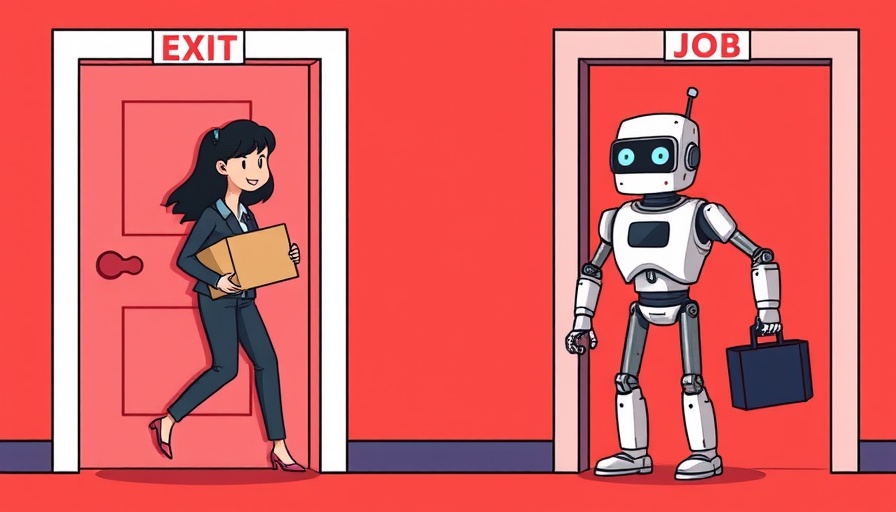
The AI Revolution: Opportunities and Challenges
In the fast-paced world of technology, few discussions are as pressing as the impact of artificial intelligence (AI) on various professions. Victor Lazarte, a prominent venture capitalist at Benchmark, put a spotlight on two professions particularly at risk: lawyers and recruiters. Lazarte's bold assertion that AI is 'fully replacing people' rather than merely augmenting their roles signals a seismic shift in how these industries operate. In legal settings, tasks traditionally handled by new law graduates—like document review and legal research—are increasingly being automated through AI technologies, enhancing efficiency and accuracy.
Immediate Impacts on Hiring Practices
In recruitment, AI's infiltration is even more profound. With 99% of Fortune 500 companies employing AI for initial applicant screenings, the applicant process itself is being redefined. Startups aiming to innovate further are raising substantial funding to enhance AI's role in hiring—this includes conducting interviews and scheduling meetings, tasks typically reserved for human recruiters. Companies like OptimHire and Mercor are at the forefront, developing solutions that reduce the human element in hiring processes.
Ensuring Lawyer Relevance in the Age of AI
As AI continues to evolve, lawyers face the challenge of remaining relevant. Firms are racing to integrate AI solutions, as evidenced by a Thomson Reuters study emphasizing the technology's prominence in strategic planning. Yet, AI's efficiency could lead to a decreased demand for entry-level roles, where recent law graduates currently thrive. Legal professionals must adapt, focusing on complex negotiations and client relationships that require a human touch.
Finding New Creative Opportunities
While the rise of AI presents challenges, it also opens doors for new business opportunities. Lazarte suggests an entrepreneurial spirit may stem from the ashes of job elimination, as individuals and businesses alike pivot to launch new ventures. Those in the creative sector or technology may find new avenues to explore in this dynamic environment. Learning about AI could even inspire innovative solutions to existing challenges within their fields.
In conclusion, the rise of AI necessitates agility in both law and recruitment. Embracing change, refining skills, and seeking entrepreneurial endeavors could empower professionals to navigate this evolving landscape. As we stand on the brink of an AI-driven transformation, those prepared to adapt are likely to flourish.
 Add Row
Add Row  Add
Add 




 Add Row
Add Row  Add
Add 
Write A Comment